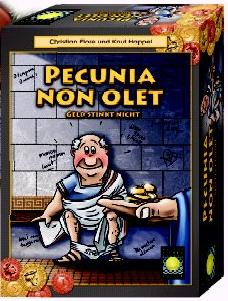

(The first public toilets ever, by the way, were introduced by Vespasian in 74 A.D). Vespasian's name still attaches to public urinals in France ( vespasiennes), Italy ( vespasiani), and Romania ( vespasiene). A WikiSzótár.hu egy magánkezdeményezésbl született magyar értelmez szótár projekt. His famous aphorism Pecunia non olet (Money does not smell) refers to the terse response he gave to his son Titus, who was complaining about the unpleasant nature of the Urine Tax his father had imposed on the product of the city’s urinals. Rincara la dose il segretario di Più Europa, Riccardo Magi: 'A parte Regeni e Zaki che ci toccano direttamente, stiamo parlando di una dittatura militare che. Son origine est quant à elle beaucoup moins connue.
#Pecunia non olet plus#
D’autant plus que tout le monde connait cette expression populaire qui signifie que l’argent, c’est de l’argent, peu importe son origine. The phrase Pecunia non olet is still used today to say that the value of money is not tainted by its origins. Avouez quand même que si lors d’une conversation, vous sortez « Pecunia non olet » ça interpelle un peu plus que si vous sortez « L’Argent n’a pas d’odeur ». When Titus said "No," he replied, "Yet it comes from urine" ( „Atqui ex lotio est“). Translations of 'non olet' into English in sentences, translation memory.
 The Roman historian Suetonius reports that when Vespasian's son Titus complained about the disgusting nature of the tax, his father held up a gold coin and asked, whether he felt offended by smell ( sciscitans num odore offenderetur). Traductions de pecunia non olet dans le dictionnaire allemand franais (Aller franais allemand) Conditio sine qua non <-> knditsio- SUBST f.
The Roman historian Suetonius reports that when Vespasian's son Titus complained about the disgusting nature of the tax, his father held up a gold coin and asked, whether he felt offended by smell ( sciscitans num odore offenderetur). Traductions de pecunia non olet dans le dictionnaire allemand franais (Aller franais allemand) Conditio sine qua non <-> knditsio- SUBST f. #Pecunia non olet how to#
It was used in tanning, and also by launderers as a source of ammonia to clean and whiten woollen togas. Pronunciation guide: Learn how to pronounce Pecunia non olet. (The Roman lower classes urinated into pots which were emptied into cesspools.) The urine collected from public urinals was sold as an ingredient for several chemical processes. This meaning was also reflected in Juvenal’s refrain that “the smell of gain is good whatever the thing from which it comes” (Juvenal, Satires XIV.204) is getting close to Gordon Gekko’s “Greed, for lack of a better word, is good.Vespasian imposed a Urine Tax ( vectigal urinae) on the distribution of urine from public urinals in Rome's Cloaca Maxima (great sewer) system. pecunia, si uti scis, ancilla est si nescis, domina: if you know how to use money, money is your slave if you don't, money is your master: Written on an old Latin tablet in downtown Verona (Italy). The etymology of the word pecunia money tells us, that for today’s townsman sitting. From this, the phrase was expanded to pecunia non olet, or rarely aes non olet ('copper doesn't smell'). “And to Titus, who expressed his indignation at the tax placed upon public urinals, – one of the new taxes that had been established, – he said, as he picked up some gold pieces that had been realized from this source and showed them to him: ‘See, my son, if they have any smell’” (Cassius Dio LXVI.14.5).įrom these two ancient sources arises the phrase ‘ Pecunia non olet’ – ‘Money does not smell,’ which is still used today with regards to how money remains of the same value no matter its origins, illicit, disgusting or otherwise. Pecunia non olet money does not stink according to legend, this word was committed by the emperor Vespasian by cutting off the complaints of his son, Titus, to donate income to the imperial treasury from taxing public toilets. This second edition of Pecunia non olet contains five expansion modules that can be combined with the base game. And when Titus said ‘No,’ he went on ‘Yet it comes from urine.’” (Suetonius, Vesp.

Vespasian handed him a coin which had been part of the first day’s proceeds: ‘Does it smell?’ he asked. “Titus complained of the tax which Vespasian had imposed on the contents of the city urinals.


 0 kommentar(er)
0 kommentar(er)
